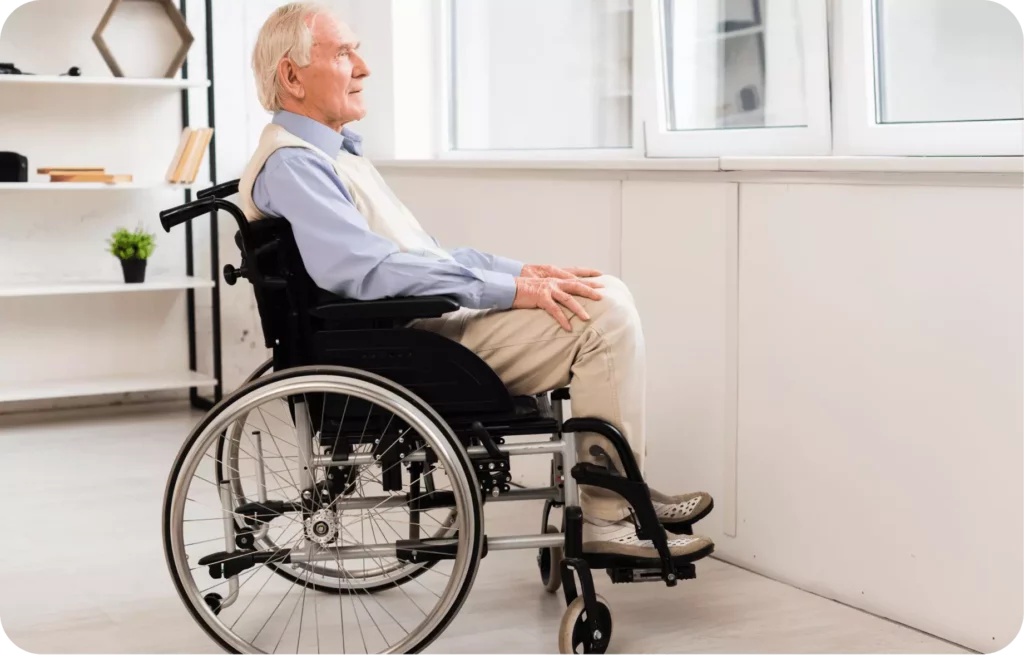As individuals get older and weaker, the majority of them choose to remain in their own homes rather than relocate to a long-term 24-hour home care facility. The urge to “age in place” is particularly strong among baby boomers and other older citizens who wish to keep their independence.
But what exactly does “aging in place” imply? It might mean different things to different individuals, but in general, it refers to the capacity to live reliably, freely, and happily in one’s own home and neighborhood, regardless of age, money, or ability level.
Aging in Place
It is referred to as the ability to live in one’s own house and neighborhood securely, independently, and pleasantly, regardless of age, money, or level of ability. It is a notion that has grown in popularity in recent years as more individuals choose to age in place rather than migrate to a retirement home or long-term care facility.
There are several reasons why ageing in place is appealing to older persons. For one thing, it helps individuals to stay in familiar surroundings and keep social links with their community. It is also less expensive than moving to a retirement community or long-term care for the elderly.
Aging in place, however, is not without its difficulties. As we age, we may face physical health issues, cognitive decline, and social isolation. As we proceed, we will consider the advantages of selecting this choice as well as the drawbacks.
Advantages of Elderly Aging in Place
- People usually have to decide whether to downsize as they age or to “age in place” and stay in their existing homes. Both alternatives have pros and downsides, but many elderly people prefer to age in place.
- Receiving home care for the elderly allows them to remain in the house they have known for many years. This can be a significant benefit since it allows individuals to preserve their independence while remaining in their comfortable surroundings.
- It can also be less expensive than moving because seniors do not have to sell their houses and pay for a smaller one.
- It also means being able to stay near to family and friends for many seniors. This is significant since social contact has been demonstrated to improve both mental and physical health.
- One of the fundamental benefits of ageing in place is the ability to remain in familiar settings. This can help to reduce stress and anxiety.
- It can also provide us with a sense of control over our lives and our surroundings.
- Seniors who age in place are more likely to be satisfied with their overall quality of life.
- Seniors who live alone can frequently make use of government programmes. This also offers economical benefits. Retirement homes may be expensive, so not everyone can afford to live there.
- Most seniors benefit from enhanced cognitive function as a result of this.
- Last but not least, there is a lower danger of falls and injury.
What Are Some of the Challenges in This Regard?
When elders age in place, they encounter a variety of obstacles.
- Physical obstacles
Such as a decrease in physical mobility and sensory capacities.
- Cognitive challenges
Such as a decrease in memory and executive functioning.
- Social challenges
Such as a decrease in social networks and support are examples of these.
Aging at home might also provide emotional difficulties. Seniors, for example, may experience loneliness, isolation, and depression. They may also have to accept the loss of their independence.
It is critical for seniors who desire to age in place to be aware of these possible obstacles and to plan ahead of time on how to manage them. There are several services available to assist seniors with aging in place safely and independently, but it is critical to be proactive in planning for potential problems.
Fortunately, there are several approaches to addressing these issues. For example, may remain active and involved by participating in social events, exercising on a regular basis, and eating a good diet. They can also maintain their mental sharpness by indulging in mind-stimulating activities such as reading, crossword puzzles, and card games.
Role in Aging in Place
As our population ages, an increasing number of individuals are choosing to age in place or to remain in their present dwelling as they become older, rather than moving into nursing homes or assisted living facilities. Carers play an important role in promoting this trend since they provide seniors with the assistance and care for the elderly that they require to be autonomous and secure in their own homes.
Special needs carers can provide a variety of services, such as aid with daily living tasks such as bathing and clothing, transportation to medical appointments, assistance with cleaning and yard work, and more. They can provide companionship and emotional support in addition to physical assistance. Carers may assist elders in remaining connected to their communities and loved ones, as well as providing crucial companionship.
Carers face challenges despite providing an important service. Many people struggle to combine their family and work duties, and they may lack the support they require to care for their loved ones. You may feel like you’re always on the run as a carer. But don’t forget to take care of yourself. Taking breaks, exercising, and dedicating time to your own social life and interests may all help you prevent burnout!


